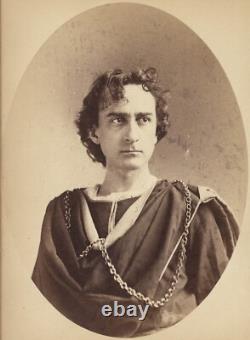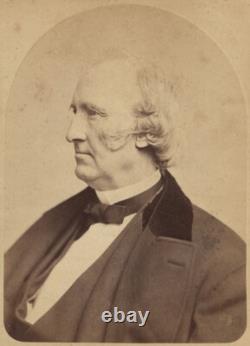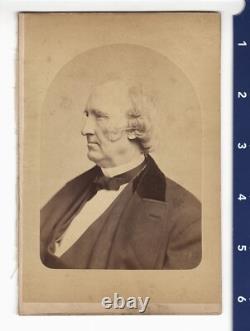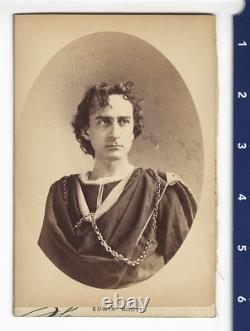
- Homepage
- Conflict
- Material
- Photo Type
- Album (13)
- Albumen (14)
- Ambrotype (201)
- Cabinet Photo (67)
- Cdv (482)
- Cdv & Tintype (6)
- Cdvs & Tintypes (7)
- Daguerreotype (84)
- Gelatin Silver (13)
- Mixed (3)
- Negative (10)
- Negative Photo (4)
- Opalotype (4)
- Other (4)
- Photograph (4)
- Snapshot (3)
- Stereoview (23)
- Tintype (536)
- Tintypes (3)
- Unknown (12)
- ... (5597)
- Subject
- Children & Infants (21)
- Civil War (31)
- Civil War Soldier (12)
- Ethnic (17)
- Family (25)
- Fashion & Costumes (10)
- Figures & Portraits (149)
- Genealogy (10)
- Historic & Vintage (90)
- History (24)
- Men (59)
- Men, Civil War (58)
- Men, Military (39)
- Military (98)
- Military & Political (586)
- Military & War (14)
- Portrait (15)
- Portraits (14)
- Soldier (12)
- Women (19)
- ... (5787)
- Theme
- Americana (42)
- Americana, Fashion (18)
- Americana, Militaria (18)
- Antique (8)
- Art (7)
- Civil War (14)
- Conflicts & Wars (7)
- Fashion (19)
- History (44)
- History, Militaria (10)
- Love (6)
- Militaria (1058)
- Patriotic (7)
- People (21)
- Politics (15)
- Portrait (69)
- Portrait, Man (22)
- Stamps (27)
- Travel (6)
- Victorian (7)
- ... (5665)
- Type
- Belt Buckle (3)
- Carte De Visite (2)
- Cdv (3)
- Cdv Photograph (15)
- Daguerreotype (3)
- Full Cdv Photo Album (2)
- Illustrated Book (3)
- Negative Film Photo (4)
- Pendant (3)
- Photo Album (3)
- Photo Frame (2)
- Photograph (1382)
- Photograph Album (53)
- Picture Book (8)
- Picture Frames (8)
- Print (3)
- Real Photo (rppc) (10)
- Tintype (9)
- Tintype Photo (4)
- ... (5570)
C. 1860's Edwin Booth / Wendell Phillips Cabinet Photograph ABOLITION CIVIL WAR






SUBJECT : Edwin Booth & Wendell Phillips (see bios below). SIZE : Board measures 4" x 6", and mounted photos measure 4" x 5.75" & 3.875" x 5.625". Edwin Booth was born on November 13, 1833, in Bel Air, Maryland.
He was the son of the renowned Shakespearean actor Junius Brutus Booth and Mary Ann Holmes. Raised in a theatrical family, Edwin made his stage debut at the age of 15 in 1849, playing Tressel in Richard III in Boston.
Over the next few years, he accompanied his father on tour and gradually gained experience and acclaim for his own performances, especially in Shakespearean roles. After his father's death in 1852, Edwin began establishing himself independently. By the late 1850s, he had emerged as one of the premier tragedians of his time, performing in major cities across the United States. His portrayal of Hamlet, which he first performed in 1857 in New York, became his signature role and was widely considered the finest of the 19th century. He was celebrated for his intense emotional expression and intellectual depth, setting a new standard for theatrical excellence in the U.In 1862, Edwin married Mary Devlin, an actress, but she died the following year, a loss that deeply affected him. Despite personal grief, he continued to perform and achieve critical acclaim. However, his career was dealt a severe blow in 1865 when his younger brother, John Wilkes Booth, assassinated President Abraham Lincoln.
The association with the assassin nearly ended Edwin's career, and he briefly retired from the stage, overwhelmed with shame and grief. In 1869, he opened Booth's Theatre in New York City, a state-of-the-art venue that he managed and used to stage high-quality productions. Although the theater ultimately proved financially unsuccessful and closed in 1874, it solidified his role as a pioneer in elevating American theater standards. Edwin toured extensively in the U.
And Europe throughout the 1870s and 1880s, earning widespread respect for his artistry. He co-founded The Players, a private club for actors and other cultural figures, in 1888, donating his home on Gramercy Park in New York City for its use.
He continued performing until 1891, when declining health forced his retirement. Edwin Booth died on June 7, 1893, in New York City.He is remembered as one of the greatest American actors of the 19th century and a key figure in the evolution of serious theater in the United States. Wendell Phillips was born on November 29, 1811, in Boston, Massachusetts, into a wealthy and socially prominent family. He received an elite education, graduating from Harvard College in 1831 and Harvard Law School in 1834.
Though trained as a lawyer, he found his calling not in the courtroom but in the public arena as an advocate for human rights. By the late 1830s, he had become deeply involved in the abolitionist movement, his passion ignited by the murder of antislavery editor Elijah P. In response, Phillips delivered a powerful public speech defending Lovejoy and condemning mob rule, a moment that launched him into national prominence and defined his life's purpose. Aligning closely with William Lloyd Garrison, Phillips became a central figure in the American Anti-Slavery Society. He rejected gradual emancipation and political compromise, calling instead for immediate and total abolition.Through the 1840s and 1850s, he crisscrossed the northern United States, delivering fiery speeches that condemned slavery as a moral abomination. Often met with hostility and threats, he never relented, using his skill as an orator to awaken the conscience of the public. Unlike many of his contemporaries, he refused to separate abolition from other human rights causes. He was an outspoken supporter of women's rights, Native American sovereignty, and workers' protections, believing in the unity of justice across all lines of oppression. During the Civil War, Phillips supported the Union but was sharply critical of President Lincoln's initial reluctance to embrace emancipation.
When Lincoln finally issued the Emancipation Proclamation, Phillips shifted his focus to ensuring that freedom was followed by full civil and political rights for Black Americans. After the war, he advocated for Radical Reconstruction and fiercely opposed President Andrew Johnson, whom he saw as betraying the cause of emancipation. Even as slavery ended, Phillips remained active in public life. He expanded his reform work to include labor rights, speaking on behalf of working-class Americans and economic justice.
In 1870, he ran unsuccessfully for governor of Massachusetts as the candidate of the Labor Reform Party, showing his continued dedication to social progress. Though never holding public office, his voice carried enormous influence.
He retired from public speaking in the early 1880s due to declining health and died on February 2, 1884, in Boston. Wendell Phillips lived a life defined by conviction, courage, and eloquence. From the courtroom he abandoned to the halls and lecture platforms he filled, he championed the powerless with a tireless belief in human dignity.
Active from the 1830s through the early 1880s, he remains one of the most compelling and radical voices of 19th-century American reform.

